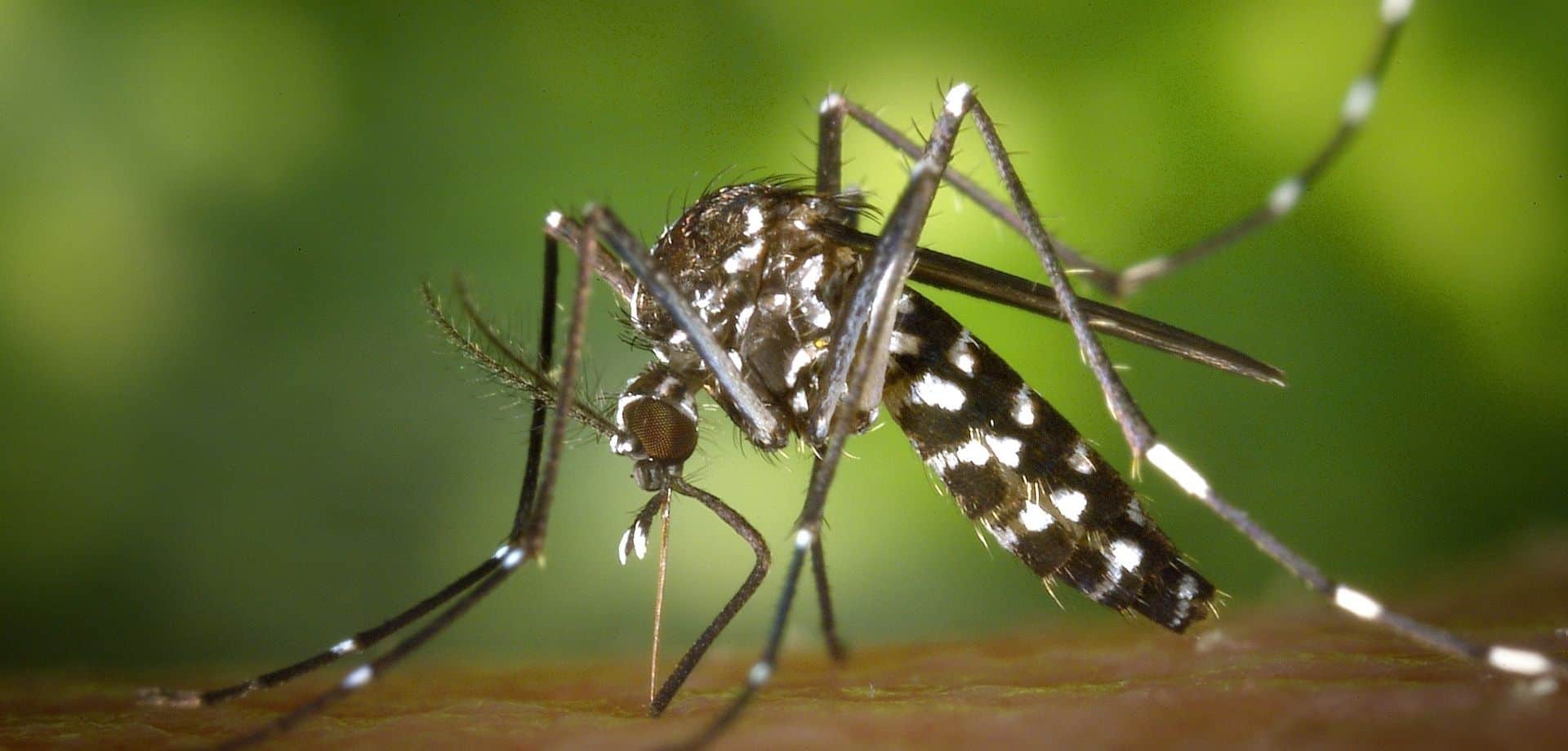Tag: Travel consultation
As the threat from the disease grows, here is everything the modern traveller needs to know about malaria.
What is malaria?
Malaria is an infection caused by a tiny, blood-borne parasite, transmitted by the bites of infected female Anopheles mosquitoes. Symptoms can often be delayed until sometime after exposure (a minimum of seven days but often four weeks or much longer), meaning the connection with travel may be forgotten, delaying diagnosis.
Returning from a tropical holiday should come with a suntan and sense of relaxation – not a tropical disease. However, the number of British travellers catching malaria abroad is rising, and scientists are warning it could get worse.
The UK Health Security Agency (UKHSA) has just published its latest data on malaria in travellers returning to the UK, and the numbers are troubling. Over 2,000 cases were reported in 2023, the highest total in over two decades. Globally, the number of cases of malaria has risen by 16 million, compared with pre-pandemic levels.
No less worrying is the potential impact of climate change. Warmer temperatures can extend malaria transmission season, as well as extend the disease’s geographical range to higher altitudes and cooler places where transmission was previously uncommon. Flooding and extreme weather events create perfect conditions for mosquitoes to thrive, resulting in outbreaks of the disease.
In tropical countries where malaria is widely prevalent, the disease takes a huge toll. In 2022, there were 249 million cases, 94 per cent of which were in Africa. These led to at least 608,000 deaths, mostly in children.
But research recently presented at the European Society of Clinical Microbiology and Infectious Diseases (ESCMID) Global Congress in Spain suggested that if the world’s carbon emissions and population growth remain on the current trajectory, the populations at risk of malaria and other mosquito-borne diseases could increase by an additional 4.7 billion people by 2100, relative to 1970-1999.
Diagnosing malaria depends on knowing that a person has been in a destination with a risk of the disease, since early symptoms can be non-specific, and malaria has a remarkable ability to be mistaken for other conditions.
The most common symptoms of malaria:
- Fever, usually above 38C and often intermittent
- Fatigue
- Aching muscles and joints
- Headache
- Chills (often with sweating and shivering)
- Abdominal pains and diarrhoea
- Sometimes jaundice (yellowing of the skin and whites of eyes)
Severe malaria can result in headache, fits and even death. Suspected malaria is therefore a medical emergency, and prompt treatment is effective and lifesaving.
The bottom line
If you develop a fever or become unwell on returning home from travelling abroad, seek medical advice promptly and make sure you doctor know that you have been away.
What areas have risks of malaria?
Risk areas for malaria include many parts of Africa, Asia, Central and South America, the Caribbean and Oceania – including holiday destinations in parts of Thailand, India and Peru.
How to prevent malaria on your travels
Medical prevention
Four to six weeks before your holiday begins, book a travel consultation regarding antimalarials – a travel nurse can advise on where and whether they are needed, and the options likely to suit you best.
Malarone and doxycycline are the two most-commonly prescribed medications, usually tablets or capsules taken once a day. They need to be commenced before travel, taken while you are away and continued on your return home.
For now, there are no suitable malaria vaccines for travellers. However, promisingly, two important vaccines have recently become available to combat malaria as part of public health campaigns in parts of Africa.
Avoiding insects
Bite prevention measures dramatically reduce the risk of disease, with insect repellents containing DEET, plug-in insect killers, mosquito bed nets and a wide range of other options. Our expert travel nurses can recommend suitable products during your travel consultation.
Other mosquito-borne diseases
Malaria is not the only disease on the rise due to climate change. Other mosquito-borne diseases include Dengue Fever (currently causing a large outbreak in South America), Japanese encephalitis, Chikungunya, Yellow Fever and Zika. The Zika outbreak in 2016 demonstrated how quickly mosquito-borne diseases can turn into an international health emergency. Climate change is expanding the range of mosquitoes capable of spreading them, and constant vigilance will be needed to combat them.
If you’re travelling to areas that are at risk for Malaria, book a travel consultation for a stress-free holiday.
Find more travel health information at fitfortravel.nhs.uk and travelhealthpro.org.uk.
Related services at Fleet Street Clinic
Specialist Travel Clinic
Antimalarials
Travel Vaccinations
Dengue Fever
Continued Reading about “Why malaria is on the rise – and how to protect yourself on holiday”
Read – Why malaria is on the rise – and how to protect yourself on holiday
Read – Britons catching Malaria at highest number in over 20 years
Read – Climate change drives deadly malaria surge as elimination efforts reach ‘crunch point’
Read – Vaccines are a glimmer of hope against malaria, but the battle has only just begun
Travelling can have a significant positive impact on one’s physical and mental health, according to a study published in the Journal of Travel & Health. The study surveyed over 1,000 adults who had recently returned from a trip and found that the majority of them reported improvements in overall well-being, including increased energy and reduced stress levels.
One of the key reasons for these self-rated health benefits is that travelling allows individuals to step out of their daily routine and experience new environments and cultures. This can lead to increased physical activity, as travellers may be more likely to walk or bike instead of drive which may also expose them to different types of food, leading to a healthier diet.
Additionally, travelling can have a positive impact on mental health as well. The study found that the majority of participants reported feeling more relaxed and less stressed after their trip. This is likely because travelling can provide a sense of excitement and adventure, as well as a break from the demands and responsibilities of everyday life.
Another benefit of travelling is that it allows individuals to build new social connections, which can be important for mental health. Meeting new people and forming new friendships can provide a sense of belonging and can also help to reduce feelings of loneliness and isolation.
In conclusion, the study suggests that travelling can be good for one’s physical and mental health. It can help to increase energy levels, reduce stress and improve overall well-being. So, next time you are planning a trip, remember it’s not only good for your soul but also for your body.
To read the full study, continue reading here: https://www.sciencedirect.com/science/article/pii/S2214140522002079?via%3Dihub
Related services available at Fleet Street Clinic:
- Travel Vaccinations
- Jet Lag Calculator
- Travellers’ Diarrhoea Online Consultation
- Antimalarials
- DVT Rick Calculator
Anna Chapman, one of our experienced Travel Nurses, gives her top 5 reasons why having a travel consultation is so important … food for thought if you’re planning a trip abroad.
1 – Reputable advice from a trusted source
Clinics that specialise in travel have practitioners who have completed extra qualifications in travel medicine, such as a Diploma in Travel Medicine, Diploma in Tropical Medicine and Certificate of Travel Health. These qualifications ensure the practitioner gets specialist knowledge that is kept up-to-date by attending conferences and participating in research in the field. Many practitioners who work in travel medicine have experienced health care abroad, through extensive personal travel or through working or volunteering. This means the travel advice that a patient receives is always current and accurate.
Our travel nurses at the Fleet Street Clinic have a Diploma in Tropical Nursing and a Certificate in Travel Health and both GPs have a Diploma in Travel Medicine and a Certificate in Travel Health. All the practitioners in our Travel Clinic have travelled extensively and practiced their profession in developing countries. This means they are more aware of the risks that travellers face and have a greater understanding of how to deal with health issues on the road.
2 – Personalised travel consultation
No two people are the same and no two travel itineraries are the same. Travel consultations take this into account and give detailed and bespoke travel advice, not only for the itinerary but also for the individual. Seeing a practitioner face-to-face means that personal risks can be evaluated to ensure all travel health needs are met, rather taking a “one size fits all” approach.
3 – Travel health is NOT just about travel vaccinations
Whilst vaccinations are important, there are many aspects to staying healthy while abroad. In addition to vaccinations, there are considerations such as avoiding insect bites, use of medical kits, coping with jet lag, use of stand-by medications and coping with altitude sickness – all things that can be discussed when you have a travel consultation
4 – On-going care
Just because you have had your vaccinations before your trip, it doesn’t mean that your care ends when you leave the clinic. Specialist clinics can provide on-going care for subsequent trips and/or post-travel health concerns
5 – Time to talk
When a clinic has a specialist travel service, ample time is allocated to each appointment. Having a team of dedicated staff committed to travel medicine means that appointments can be completely flexible and can accommodate individuals, groups or families, both at the clinic or off-site, as well as offering appointments for last minute travellers.
You can book a travel health consultation online. Or see here, or more information about our travel health services.






